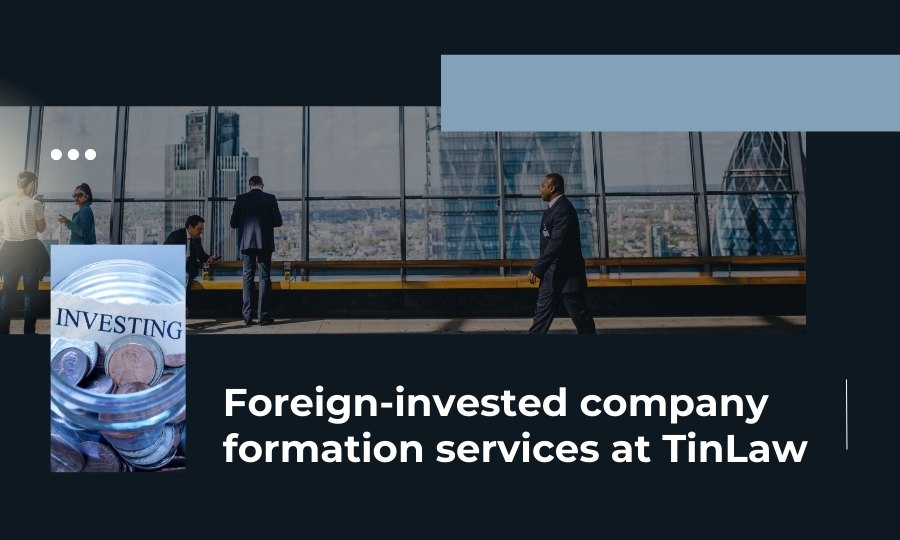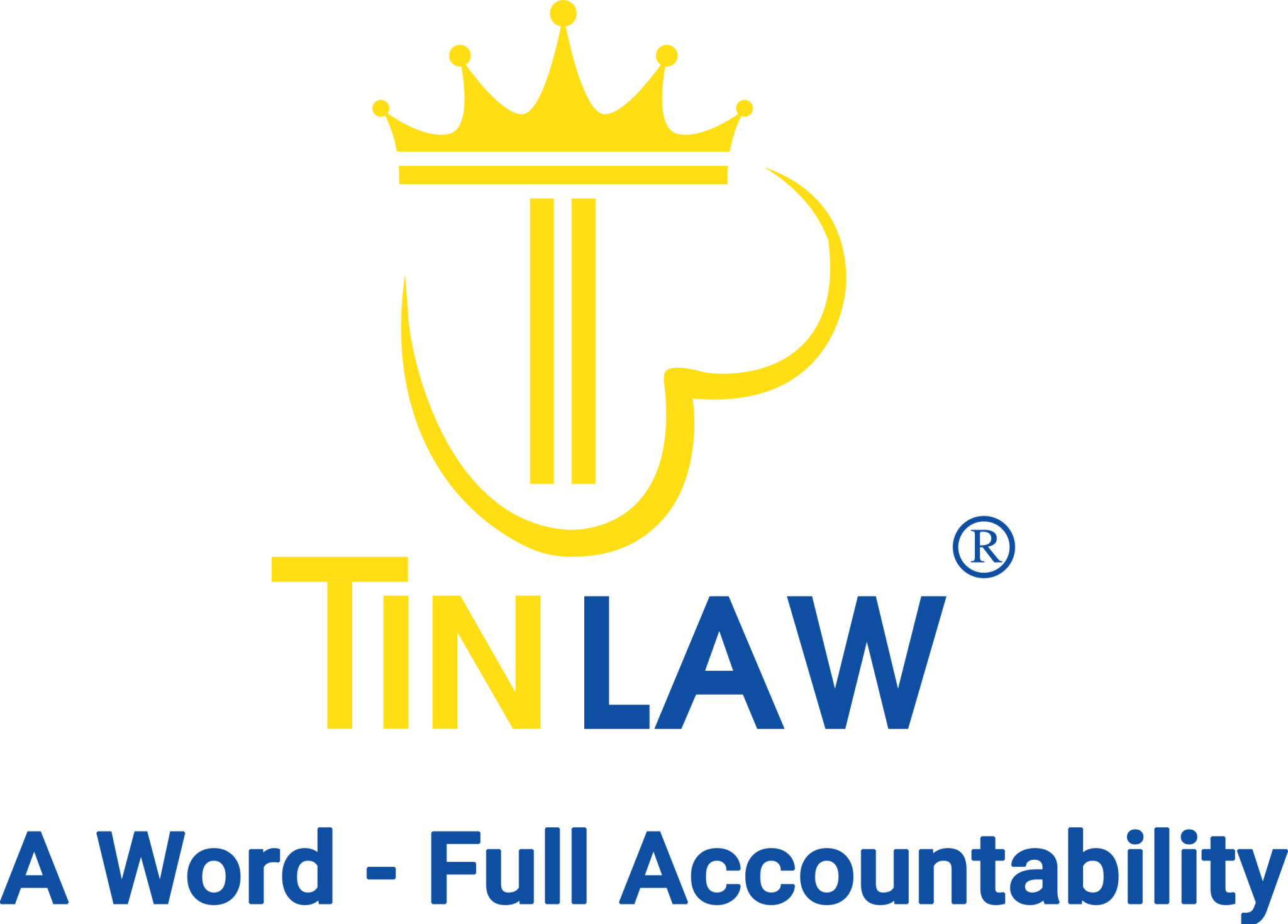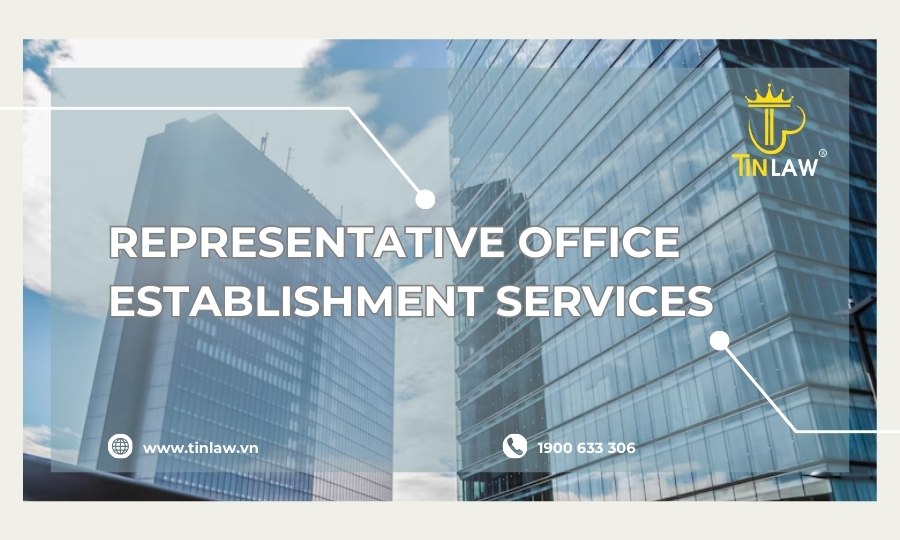Establishing a foreign-invested enterprise in Vietnam is not a straightforward task for investors. It requires a solid understanding of the procedures, regulations under the Enterprise Law and Investment Law. If you are unsure about these procedures and rules, read the article below for detailed guidance!
Forms of establishing a foreign-invested enterprise
Investors looking to establish a foreign-invested enterprise must choose between the following two forms
Direct capital contribution to establish a new enterprise
One of the most common ways for foreign investors to enter the Vietnamese market is through direct capital contribution to form a new enterprise.
In this form, foreign investors actively participate in the process of establishing a company in Vietnam. This means the investor contributes capital from the outset to create an entirely new business.

Forms of establishing a foreign-invested enterprise
Under current regulations, the equity contribution ratio of foreign investors can range from 1% to 100% of the charter capital, depending on the enterprise’s business sector.
Capital contribution or share purchase in an existing enterprise
In addition to establishing a new enterprise, foreign investors have another option for entering the Vietnamese market: contributing capital or purchasing shares in existing businesses.

Capital contribution or share purchase in an existing enterprise
This form allows foreign investors to directly acquire a portion of ownership in an already established Vietnamese enterprise. Depending on the business sector, foreign investors may contribute anywhere from 1% to 100% of the enterprise’s charter capital.
Conditions for establishing a foreign-invested enterprise
What conditions must be met to establish a foreign-invested enterprise? Let’s explore the details with TinLaw below!
Conditions for foreign investors establishing a new company
To establish a new company in Vietnam with foreign investment, investors must meet specific conditions outlined in Article 24 of the Investment Law No. 61/2020/QH14. These include:
- Foreign investors may only engage in business sectors that are open to foreign investment under Vietnamese law.
- Before establishing a company, investors must prepare an investment project and complete the procedures for obtaining or amending the Investment Registration Certificate.
To establish a foreign-invested enterprise in Vietnam, investors must strictly comply with legal regulations, particularly those concerning business sectors and investment projects. TinLaw ensures that investors are fully informed and guided through the process for successful business setup in Vietnam.
Conditions for foreign investors purchasing capital contributions or shares
Purchasing shares or contributing capital to an existing Vietnamese enterprise is a common investment method. According to Article 24 of the Investment Law 2020, foreign investors purchasing shares or contributing capital to Vietnamese enterprises must meet the following conditions:
- Foreign investors must satisfy market access conditions as stipulated in the Investment Law.
- The purchase of shares or capital contributions by foreign investors must not affect national defense and security in Vietnam.
- If the foreign investor intends to purchase shares or contribute capital involving land use rights in special areas such as islands, border areas, or coastal areas, they must comply with land laws regulating the acquisition of land use rights in these areas.

Conditions for foreign investors purchasing capital contributions or shares
Therefore, to purchase shares or contribute capital to a Vietnamese enterprise, foreign investors must not only meet general legal competency requirements but also comply with specific regulations regarding business sectors, national defense and security, and land use.
Conditions regarding investor entity and nationality
Who can become a foreign investor in Vietnam? This is a common question among those seeking to invest in the Vietnamese market.
According to Vietnamese law, entities eligible to invest in Vietnam include both individuals and organizations. Specifically:
- Foreign individuals must be at least 18 years old and possess full legal capacity as defined by the laws of their home country.
- Organizations or enterprises must have the nationality of WTO member states or countries that have signed bilateral treaties with Vietnam.
Notably, Vietnamese law does not currently impose restrictions on the nationality of investors. However, regardless of nationality, foreign investors must comply fully with Vietnamese legal regulations.
Conditions regarding financial capability of investors
In addition to meeting legal and nationality conditions, foreign investors must demonstrate financial capability to establish a foreign-invested enterprise. Foreign investors need to prove that they have sufficient financial resources to execute their projects and ensure stable business operations in the future.

Conditions regarding financial capability of investors
To substantiate financial capability, investors must provide documents such as financial statements, bank account balance certifications, etc. The evaluation of an investor’s financial capability will be conducted by competent authorities.
Conditions regarding registered headquarters and project location
When investing in Vietnam to establish a foreign-invested enterprise, another essential condition is that investors must have a specific location for project implementation. This serves as legal evidence to prove that the project is feasible and has been carefully prepared in terms of infrastructure.
Investors are required to provide documentation proving the location of the project, including lease agreements and the lessor’s legal documents. This location must not only serve as the company headquarters but also be the site for conducting business and production activities according to the registered project.
Conditions regarding experience and industry-specific requirements
When investing in conditional business sectors in Vietnam, foreign investors are required to meet specific requirements regarding experience and expertise.
This ensures that investors possess the necessary professional knowledge, skills, and experience to effectively manage and operate the enterprise.
Documentation for establishing a foreign-invested enterprise
The required documentation varies depending on whether the investor is an individual/organization and whether the investment is made directly or indirectly. Details are as follows:
Documentation for establishing a foreign-invested company for individual investors
Foreign individual investors establishing a foreign-invested enterprise in Vietnam can choose between direct and indirect investment methods. Below are the corresponding sets of documentation for each method:
| Establishing an FDI Company for Individual Investors (Direct Investment) | Establishing an FDI Company for Individual Investors (Indirect Investment) |
|
|
Foreign investors can select the appropriate set of documentation based on their chosen investment method or approach!
Documentation for establishing a foreign-invested company for organizational investors
Similar to the process for individual investors, organizational investors establishing a foreign-invested enterprise in Vietnam can choose between direct and indirect investment methods. The specific documentation required for each method is as follows:
| Establishing an FDI Company for Organizational Investors (Direct Investment) | Establishing an FDI Company for Organizational Investors (Indirect Investment) |
|
|
Note: All information regarding the required documentation for establishing a foreign-invested enterprise provided above is for reference purposes only. For detailed advice, please contact TinLaw at the hotline: 1900 633 306.
Steps to establish a foreign-invested enterprise
The process and procedures for establishing a foreign-invested company vary depending on the investment method. Below is a detailed guide for each scenario!
Procedure for establishing a foreign-invested company when investors contribute capital from the outset
The procedure for establishing a foreign-invested company when investors contribute capital from the outset includes the following steps:
Step 1: Prepare the required documentation for establishing a foreign-invested company as outlined by TinLaw above.
Step 2: Submit the application for an Investment Certificate to the Department of Planning and Investment or the Industrial Zone Management Board (depending on the project).
Step 3: The competent authority will appraise and approve the application within 15 working days from the date of receiving a complete and valid dossier.
Step 4: After obtaining the IRC, prepare the application dossier for an Enterprise Registration Certificate at the Department of Planning and Investment. The dossier includes:
- The issued Investment Registration Certificate
- The company’s charter
- A list of members/shareholders (depending on the type of enterprise)
- For individuals: Citizen ID card or passport
- For organizations: Legal documents of the representative
- In the case of foreign organizational members, a legalized copy of the Business Registration Certificate or equivalent document.
Step 5: Once the Enterprise Registration Certificate is issued, the enterprise must make a public announcement.
Step 6: Engrave the company seal and notify the relevant authorities about the seal sample.
Step 7: Apply for additional business licenses or other operating permits required in Vietnam.
Step 8: Subsequently, the foreign-invested company must open a direct investment capital account in foreign currency. This procedure must be carried out at a bank authorized to conduct legal foreign exchange transactions in Vietnam.
Step 9: Complete additional procedures, including tax registration, labor registration, and social insurance, to officially commence operations.

Procedure for establishing a foreign-invested company when investors contribute capital from the outset
By following the steps above, investors can successfully complete the procedures for establishing a legally recognized foreign-invested enterprise under Vietnam’s Investment Law.
Procedure for establishing a foreign-invested enterprise through capital contribution or share purchase
Below are the basic steps to establish a foreign-invested enterprise through capital contribution or share purchase:
Step 1: The Vietnamese enterprise must be legally established and operational before the foreign investor can contribute capital or purchase shares.
Step 2: The foreign investor prepares the necessary documentation as outlined by TinLaw above.
Step 3: The investor submits the application dossier to the Department of Planning and Investment where the Vietnamese enterprise is headquartered. Within 15 working days of receiving a complete and valid dossier, the Department of Planning and Investment will issue a notification confirming the fulfillment of conditions for the capital contribution, share purchase, or acquisition of equity in a company in Vietnam.
Step 4: Once the application is approved, the investor proceeds with the purchase of the equity or shares of the Vietnamese enterprise. In cases where the foreign investor’s contribution exceeds 51% of the charter capital, the Vietnamese company must open a direct investment capital account. The investor is responsible for transferring the contributed capital through this account.
Step 5: The Vietnamese enterprise must update its Enterprise Registration Certificate to reflect the foreign investor’s capital contribution or share purchase. All relevant information must be fully and accurately updated.

Procedure for establishing a foreign-invested enterprise through capital contribution or share purchase
By following the above steps, foreign investors can legally formalize their capital contribution or share purchase in a Vietnamese enterprise, thereby enabling both the investor and the enterprise to expand investment and business opportunities.
Advantages of establishing a foreign-invested enterprise through share purchase or capital contribution
Establishing a foreign-invested enterprise (FDI) through capital contribution or share purchase is an attractive option for many investors. This approach offers several advantages compared to setting up a completely new company. Below are the key benefits of this investment method:
- Compared to establishing a new company, the procedures for capital contribution or share purchase are typically simpler and require less time.
- The enterprise already has an existing distribution network and customer base, enabling investors to quickly access the market and generate revenue.
- Investors can leverage the existing facilities and assets of the enterprise, minimizing initial investment costs.
- Investors can diversify their business operations by integrating with the enterprise’s existing activities.
- Investors can more easily assess the potential and risks of the enterprise before making an investment decision.
- An already operational enterprise reduces risks associated with market fluctuations.

Advantages of establishing a foreign-invested enterprise through share purchase or capital contribution
Indeed, this investment method offers numerous advantages for investors. However, investors should carefully evaluate the operational and financial condition of the enterprise before making an investment decision!
Key considerations when establishing a foreign-invested company
- Are there important considerations when establishing a foreign-invested company? Absolutely, there are many crucial points investors need to be aware of. Refer to the details below for guidance:
- Investors should thoroughly research the list of prohibited or restricted business sectors for foreign investors.
- Each business sector has specific operational requirements; investors must ensure full compliance with these conditions.
- Investors must guarantee the minimum investment capital as stipulated by law and ensure it aligns with the project’s scale. Additionally, the source of investment capital must be legal and clearly documented.
- Investors should prepare all necessary documents proving land use rights or lease agreements for the business location.
- Investment registration and business registration dossiers must be complete, accurate, and comply with regulations.
- It is advisable to seek advice from specialized companies like TinLaw, which can provide professional support and promptly address any concerns.
- Understanding Vietnam’s business culture is essential to building strong and effective partnerships.

Key considerations when establishing a foreign-invested company
With the above considerations in mind, we hope to help you avoid unnecessary risks during the process of establishing a foreign-invested company.
Where to find reliable services for establishing a foreign-invested company?
The market for foreign-invested company formation services in Vietnam is currently highly dynamic. This raises an important question for investors: Which service provider should you choose to ensure a fast, efficient, and cost-effective company formation process?
TinLaw – A leading provider of foreign-invested company formation services. With years of experience in business formation, TinLaw takes pride in being one of the most reputable service providers in the industry. When choosing TinLaw’s services, customers benefit from numerous outstanding advantages:
- Comprehensive support anytime, anywhere: TinLaw’s dedicated consultants are always ready to answer questions and provide essential information to clients.
- Reasonable and transparent costs: We offer the most competitive pricing in the market, with a commitment to no additional costs beyond the quoted price.
- Timely delivery of results: TinLaw ensures the completion of company formation procedures within the shortest time frame, typically 20–30 working days.
- Progress tracking and updates: Clients are regularly informed of the status and progress of administrative procedures.
- Representation for administrative procedures: TinLaw acts on behalf of clients to handle all administrative formalities, saving clients time and effort.
- Dedicated post-registration support: We assist clients with procedures following business registration, such as obtaining additional licenses, tax registration, insurance, etc.

Foreign-invested company formation services at TinLaw
With these exceptional advantages, TinLaw is confident in being a trusted partner for clients on their journey to establishing a company in Vietnam. Contact us today for the best advice and support!
Frequently asked questions about establishing a foreign-invested company
Establishing a foreign-invested company in Vietnam consistently attracts interest from many international investors. However, during the process, investors often encounter numerous questions regarding procedures and requirements. Below are the most frequently asked questions compiled by TinLaw to help address your concerns:
Do foreign-invested companies qualify for investment incentives?
Foreign-invested companies are eligible for investment incentives as stipulated in the Investment Law 2020. However, the specific incentives granted depend on the scale and nature of the investment project.
What taxes do foreign-invested companies need to pay?
Similar to Vietnamese-owned companies, foreign-invested companies are required to pay certain basic taxes, including value-added tax (VAT), business license tax, corporate income tax, import-export tax (if applicable), etc.
What types of enterprises can foreign-invested companies establish?
Foreign investors are permitted to establish the following types of enterprises: single-member limited liability company, multi-member limited liability company with two or more members, and joint-stock company.
Conclusion
The above is comprehensive information about establishing a foreign-invested company shared by TinLaw. If you are planning to invest in the Vietnamese market to expand your business, do not hesitate to contact TinLaw for professional support!










